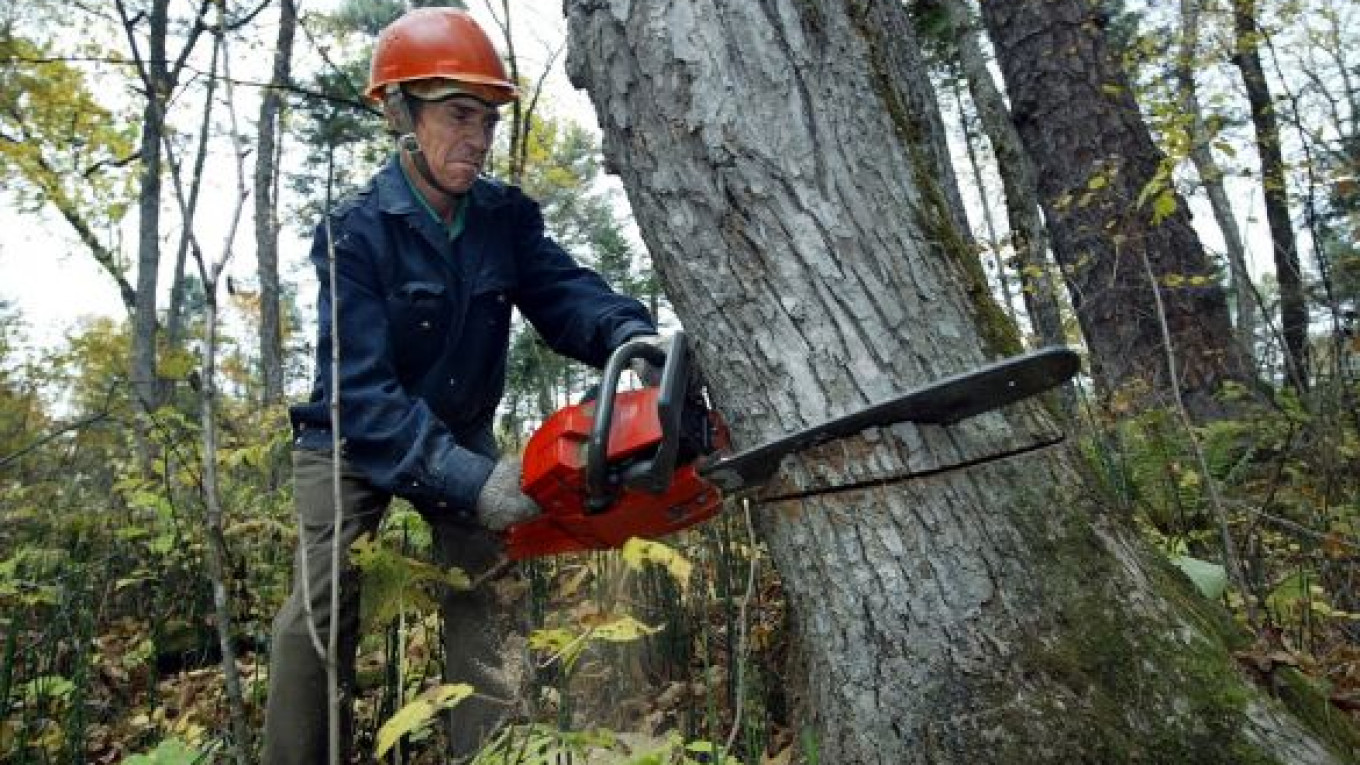A scheme involving corrupt Russian officials, illegal Chinese loggers and major hardwood flooring retailers in the West is destroying forests and endangering tiger habitats in Russia's Far East, an environmental group said.
A report published Wednesday by the Environmental Investigation Agency, or EIA, estimates that up to 80 percent of the hardwood cut in Russia's Far East is harvested illegally. The trade brings in "high profits for both the Chinese and Russian mafia," while wiping out one of the world's last remaining temperate hardwood forests and its endangered Siberian tigers, and destroying the livelihoods of more than 100,000 indigenous people, the report said.
"China, the destination for 96 percent of the valuable hardwoods exported from the RFE [Russian Far East,] functions as a 'black box' for illegally logged timber, in which the origins of illegally logged timber are obscured," the report said.
EIA, which has offices in the U.S. and Britain, blamed demand for hardwood floors in the West for fueling illegal logging, and has singled out the largest hardwood flooring retailer in the U.S., Lumber Liquidators, as a major culprit.
EIA accused the Virginia-based company of importing millions of square feet of illegally harvested oak from Chinese suppliers since 2008, when the U.S. amended its environmental Lacey Act to include specific penalties for illegal logging, the report said.
The U.S. government opened an investigation into Lumber Liquidators, and the company said in a statement that it was cooperating to provide the requested information.
The company also said it believes the EIA report contains numerous inaccuracies and unsubstantiated claims, the Financial Times reported Wednesday.
The report said that most of Lumber Liquidators' supplies come from wood that has been illegally harvested by a Chinese sawmill operator, the Suifenhe Xingjia Economic and Trade Company. During an undercover investigation by EIA, the Chinese company's top managers acknowledged and described "numerous instances of illegal harvesting and bribing of local Russian officials," the environmental group said.
Illegal logging also cost Russia 4 billion rubles ($123 million) in lost revenues and resources in 2010 alone, but these officially registered losses may represent only a tiny fraction of the actual costs, the report said.
A Message from The Moscow Times:
Dear readers,
We are facing unprecedented challenges. Russia's Prosecutor General's Office has designated The Moscow Times as an "undesirable" organization, criminalizing our work and putting our staff at risk of prosecution. This follows our earlier unjust labeling as a "foreign agent."
These actions are direct attempts to silence independent journalism in Russia. The authorities claim our work "discredits the decisions of the Russian leadership." We see things differently: we strive to provide accurate, unbiased reporting on Russia.
We, the journalists of The Moscow Times, refuse to be silenced. But to continue our work, we need your help.
Your support, no matter how small, makes a world of difference. If you can, please support us monthly starting from just $2. It's quick to set up, and every contribution makes a significant impact.
By supporting The Moscow Times, you're defending open, independent journalism in the face of repression. Thank you for standing with us.
Remind me later.


